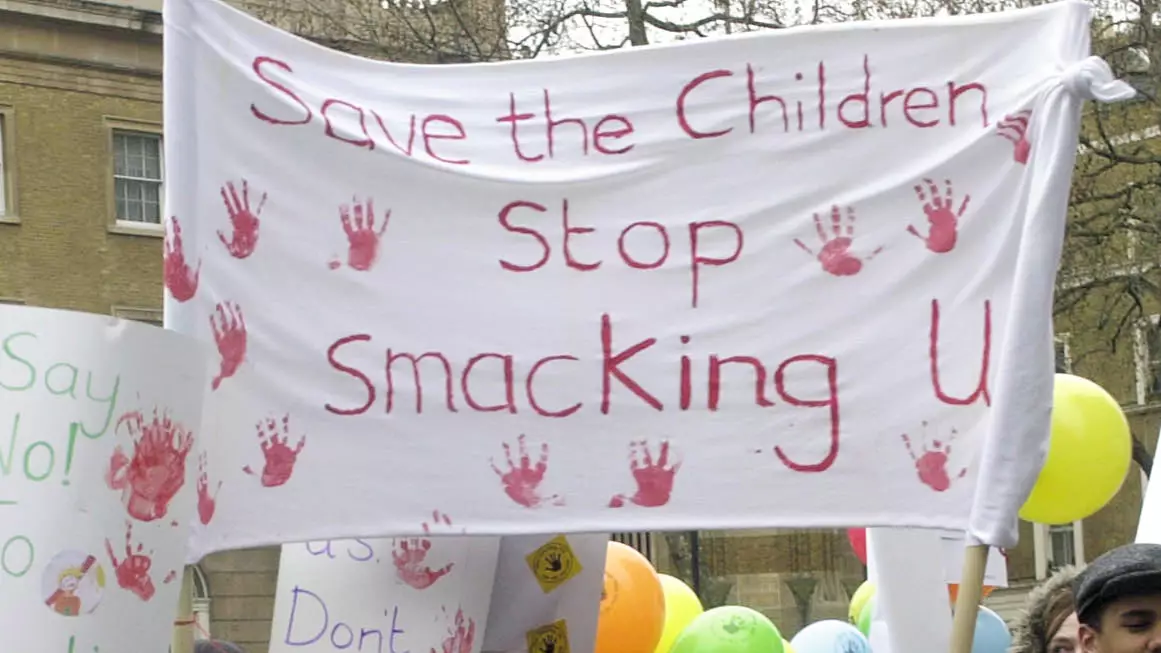
A massive review of nearly 70 studies has confirmed the long suspected idea: spanking and other forms of physical punishment can actually make a child's behaviour worse.
Plenty of parents will claim a light slap on the toosh is warranted to teach your youngen when they've done something wrong.
But academics have inspected research from US, Canada, China, Colombia, Greece, Japan, Switzerland, Turkey and the United Kingdom and an obvious trend has emerged.
Advert
Senior author Elizabeth Gershoff, a professor in human development and family sciences at The University of Texas at Austin, said the systematic review found 'physical punishment such as spanking is harmful to children's development and well-being'.
The findings have been published in the journal The Lancet and it will no doubt ruffle a few parents' feathers.

During the review, researchers omitted verbal and 'severe' types of punishment that would normally be chalked up as child abuse. That includes stuff like 'hitting a child with an object or fist' or 'washing a child's mouth out with soap'.
Advert
Gershoff said some studies found there were small positive effects of physical punishment, however the majority very clearly stated the negative impacts far outweighed anything positive.
She added: "Parents hit their children because they think doing so will improve their behaviour.
"Unfortunately for parents who hit, our research found clear and compelling evidence that physical punishment does not improve children's behaviour and instead makes it worse."
The big clincher from the review was there were 13 out of 19 independent studies that found spanking and other forms of child punishment sparked 'more external problem behaviours over time'.
Advert
These behaviours include 'increased aggression, increased antisocial behaviour, and increased disruptive behaviour in school'. This negative outcome of physical punishment didn't discriminate and affected children of all sexes, races, and ethnicities.
Another approach found five out of seven studies highlighted the connection between the frequency of physical punishment and a child's negative behaviour over time.
Gershoff's study also found the good cop/bad cop system doesn't work. Four out of five studies confirmed that parents who had warm and positive parenting style didn't lessen the 'effect of physical punishment on an increase in behaviour problems."
Smacking is still legal in 130 countries, including all 50 states in the US, as well as Wales, England and Northern Ireland, however Scotland outlawed it. Parts of the UK where smacking is allowed only permits it when the act amounts to 'reasonable punishment'.
Advert
UNICEF reports there are around 250 million children aged between two and four who live in a country that permits spanking.
Featured Image Credit: PATopics: News, Research, Interesting